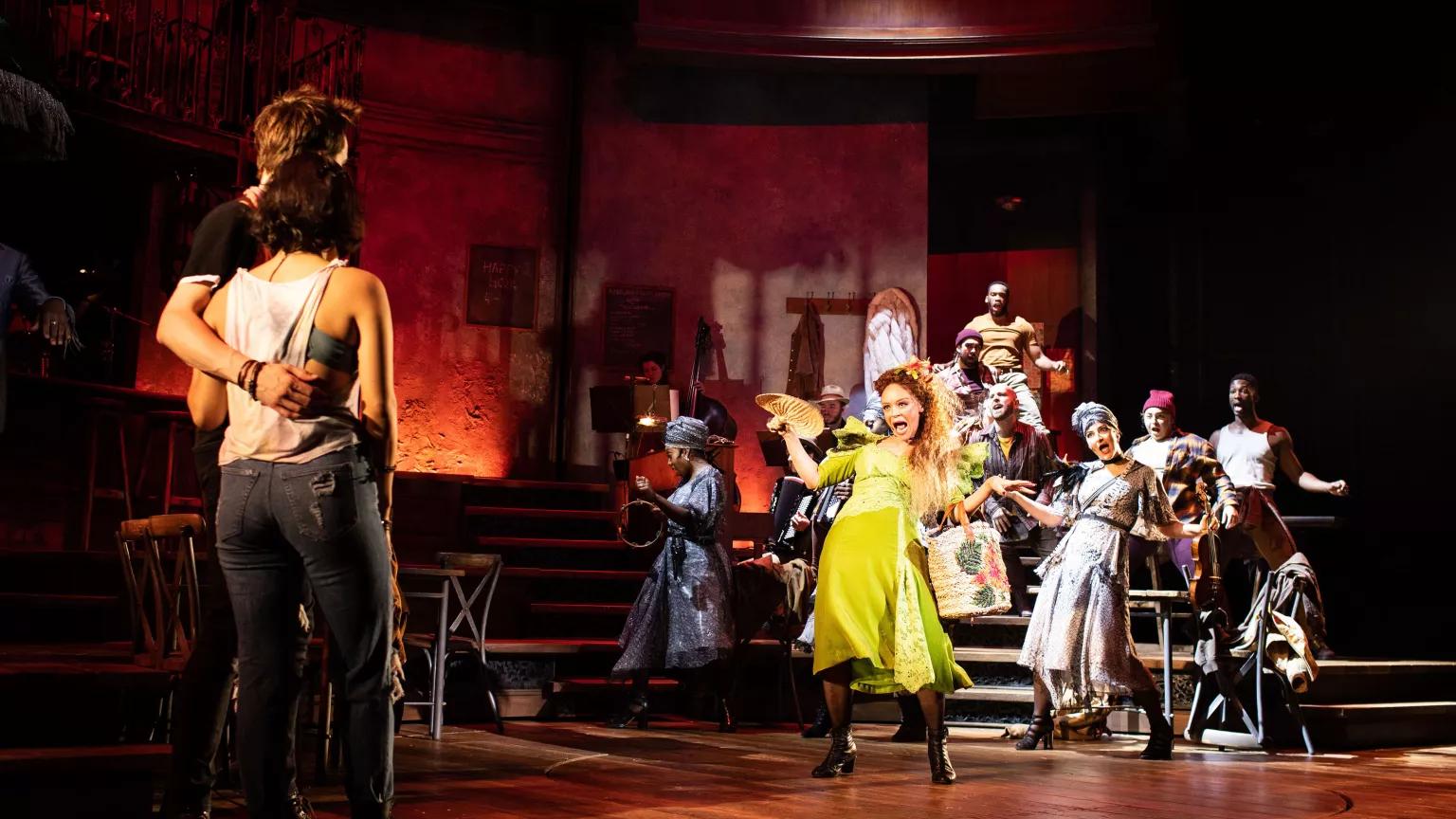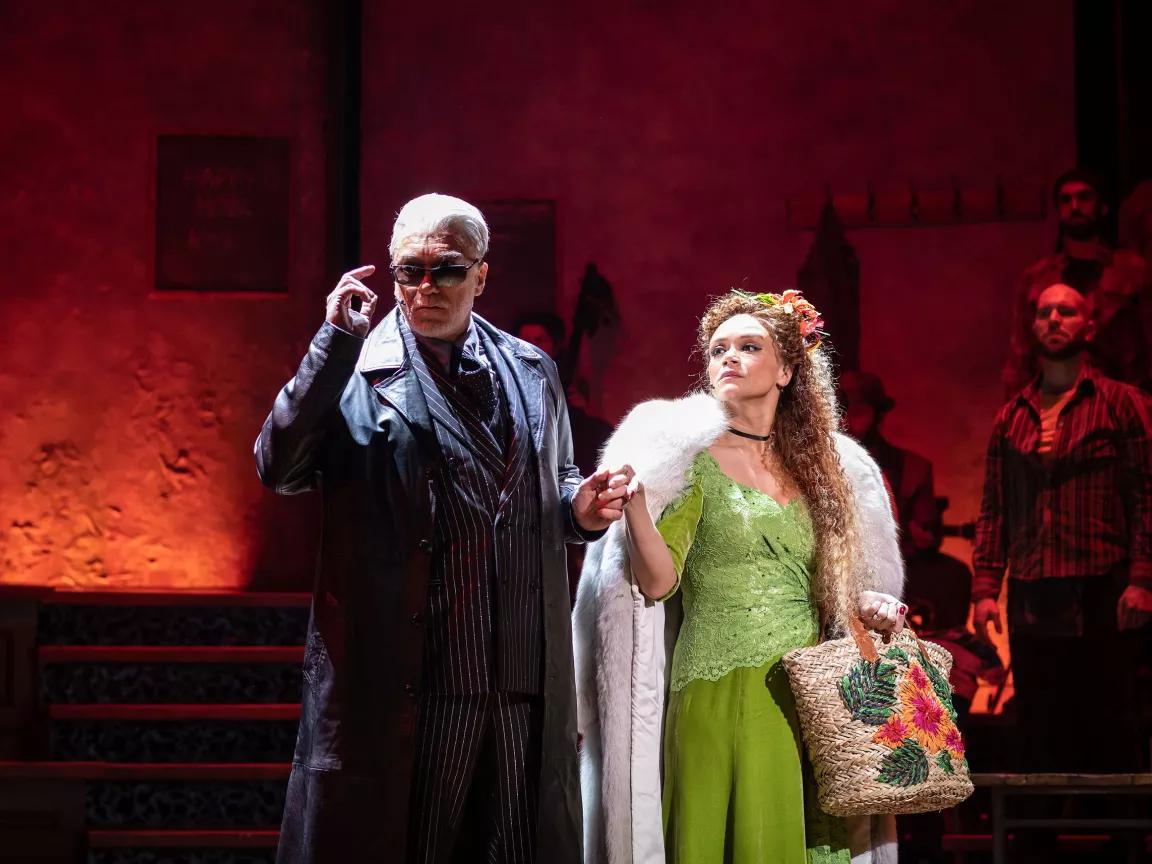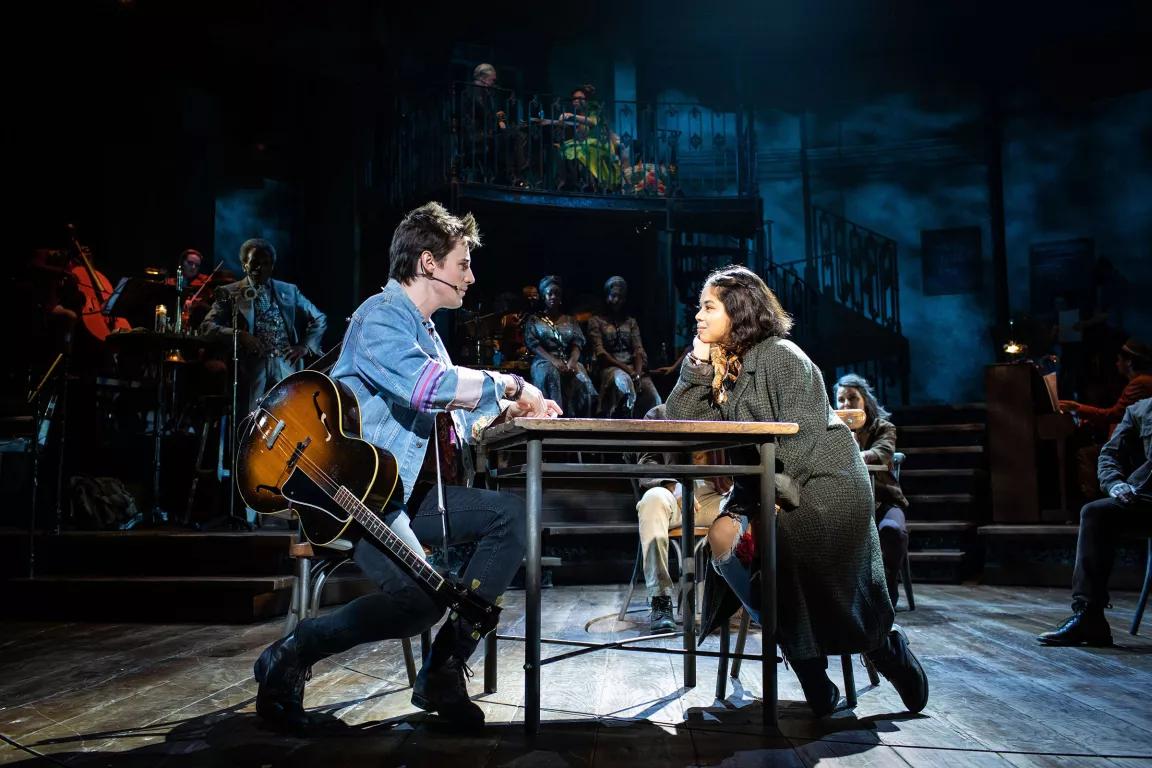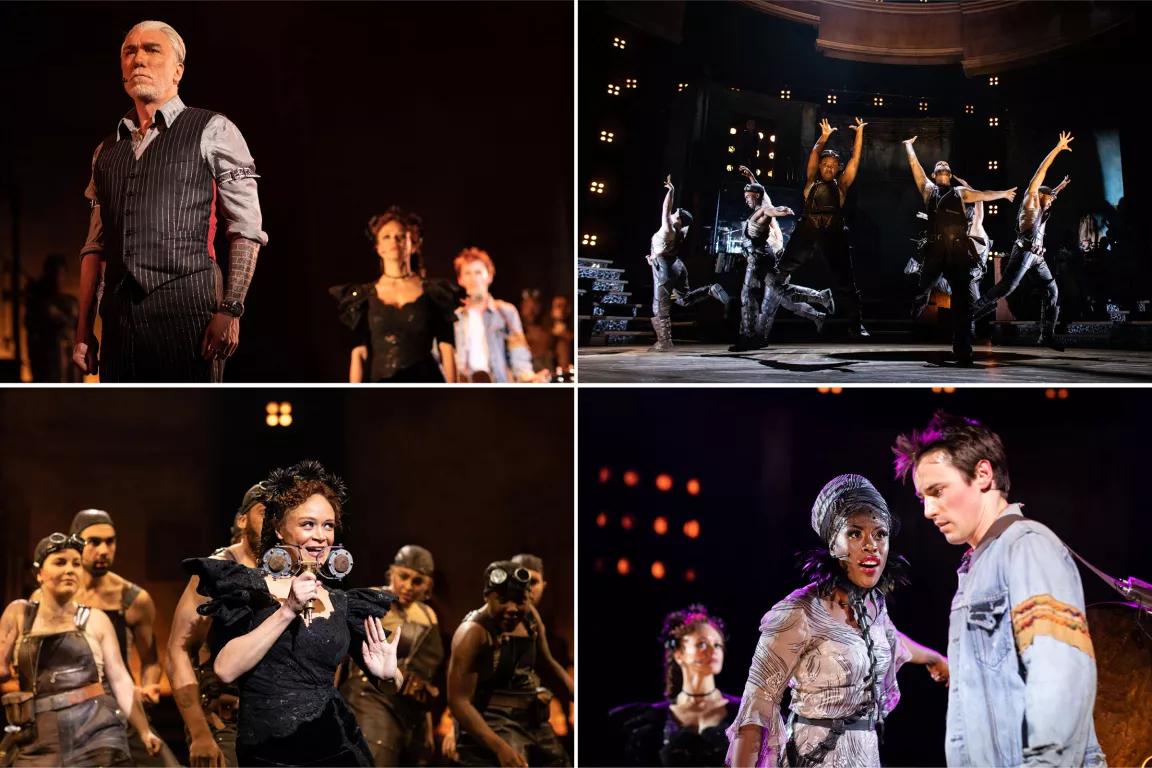In “Hadestown,” the Coal-Fired Lights Are Bright on Broadway
Director Rachel Chavkin’s musical about climate change is an infectious, bluesy trip to the underworld—that finds hope in the darkest of places.

Amber Gray (Persephone) and the company of Hadestown at National Theatre
Helen Maybanks
The king of the underworld is back—and he works for Big Oil.
Opening on Broadway this month, Hadestown is a decidedly 21st-century reboot of two Greek love stories—those of Hades and Persephone, and Orpheus and Eurydice—that intertwine in a soupy Styx of climate dystopia.
“Why is it so hot down here?” asks Persephone, queen of the underworld. “Hotter than a crucible. It ain’t right, and it ain’t natural.”
One might say Persephone’s tale is the first climate change story ever told: When Hades kidnapped the Greek goddess of springtime and brought her to the underworld, he took the seasons with her. “Strange things happen in the world these days,” Eurydice sings in her opening lines. “Fall comes early. Spring comes late. One day summer comes, the next she goes, any way the wind blows.”
The musical pumps new urgency into the ancient myths, infusing them with swinging New Orleans jazz, brassy wit (largely from the big-haired and boozy Persephone), and a chain-gang chorus, all amid a smoky industrial backdrop of electric wires, train whistles, and greasy gears. You can nearly see the dancers rhythmically kick coal-town soot into the air as the mischievous muses of wind and weather swirl around, toying with the mere mortals.
Written by Anaïs Mitchell and directed by Rachel Chavkin, the folk opera cleverly recasts the classic characters. Hades—slick-haired and pinstriped, with a seductive voice deeper than the underworld itself—is the exploitative CEO of toiling miners, whom he has granted “security” in exchange for their freedom. In his quest for power and dominance, Hades oppresses his true love, Persephone, who comes to represent our currently mistreated Mother Earth.
Eurydice, a penniless and hungry environmental refugee, makes a deal with Hades to live in the relatively safe and stable Hadestown. (This is a tweak of the original story, in which Eurydice has no choice.) But “you would do anything just to fill your belly full of food,” she sings, “find a bed that you could fall into—where the weather wouldn’t follow you.”
And wide-eyed Orpheus, in love with Eurydice and in search of a song beautiful enough to bring “the world back into tune,” becomes a rabble-rousing climate activist. Sure, he’s naive, but in the words of his guardian, Hermes, he has a gift for seeing what the world could be. “What’s the purpose of a man, just to turn his eyes away?” the boy asks the factory line of indentured workers. “What’s the use of his backbone, if he never stands upright?” Orpheus sets out to retrieve Eurydice from Hadestown—and stand up to the hard-hearted greed and heavy-handed control Hades has mistaken for love and protection.
More than a decade in the making, Hadestown was first a DIY community theater project in Vermont and then a concept album that went viral back in 2010. More recently, it debuted as an Off Broadway hit at the New York Theater Workshop in 2016 and opened at the National Theatre in London last fall. As the show developed over the years, its central question—whether we will do enough to save the planet (and ourselves)—has become ever more urgent. Just weeks before Hadestown premiered abroad, one of the strongest hurricanes on record slammed into Florida’s Panhandle. Soon after, the Camp Fire ripped through the California town of Paradise, becoming the most deadly and destructive wildfire in the state’s history. Meanwhile, the world’s hyper-polarized politicians have turned, you might say, nearly mythic—dividing themselves down the age-old dichotomies of right and wrong, good and evil.
Mitchell has proved herself uncannily prescient. The call-and-response song she wrote more than a decade ago is called “Why We Build the Wall.” Hades asks his workers, “Who do we call the enemy, my children, my children?” to which they reply, “The enemy is poverty, and we build the wall to keep us free.” Mitchell writes in the Huffington Post: “People began to ask if it was written in response to the Trump campaign, when in reality, both Trump and the song were simply tapping into the same folk archetypes.”
In the second act, Hadestown becomes nearly as chaotic as climate change itself: The stage spins like a conveyor belt, smoke from the underworld billows, and low-hanging dome lights, fit for the depths of a coal mine, swing out over the audience.
The show’s tagline, “Come see how the world could be,”presents, of course, the same fork-in-the-road dilemma as the real-life climate crisis. Like Orpheus and Eurydice, we must choose between fear and hope, chains and freedom—between a life spent aboveground in relative harmony with nature, or life as a cog in a machine, way down in Hadestown.
Hadestown opens at New York’s historic Walter Kerr Theater on Broadway on April 17.
This article was originally published on onEarth, which is no longer in publication. onEarth was founded in 1979 as the Amicus Journal, an independent magazine of thought and opinion on the environment. All opinions expressed are those of the authors and do not necessarily reflect the policies or positions of NRDC. This article is available for online republication by news media outlets or nonprofits under these conditions: The writer(s) must be credited with a byline; you must note prominently that the article was originally published by NRDC.org and link to the original; the article cannot be edited (beyond simple things such grammar); you can’t resell the article in any form or grant republishing rights to other outlets; you can’t republish our material wholesale or automatically—you need to select articles individually; you can’t republish the photos or graphics on our site without specific permission; you should drop us a note to let us know when you’ve used one of our articles.





What Is Congestion Pricing?
Climate Change Takes Fashion Week by Storm (and by Drought and by Fire . . .)
When Art Mimics Highway Signage